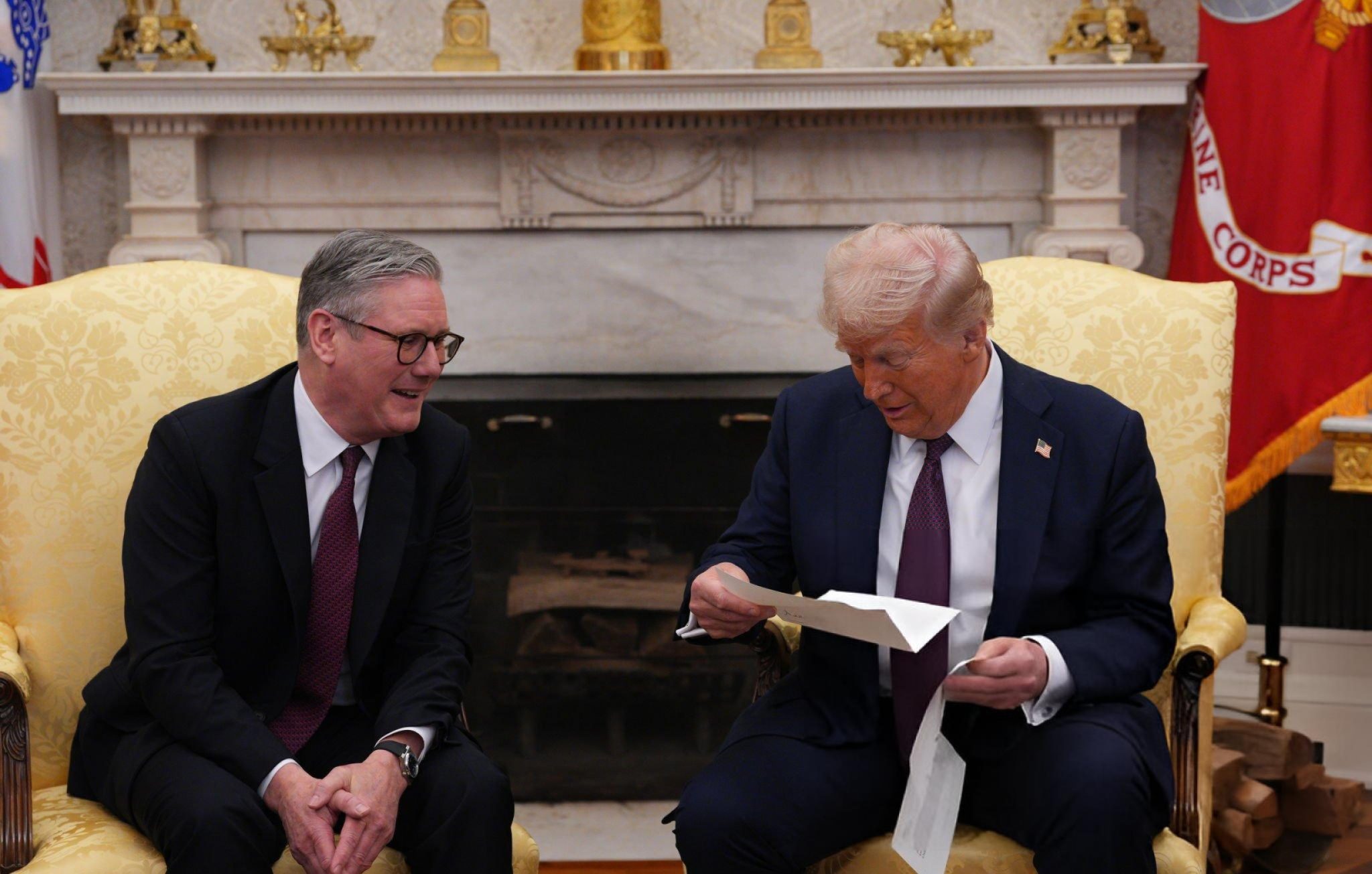Prime Minister Sir Keir Starmer and US President Donald Trump have reaffirmed their commitment to maintaining international pressure on Russian President Vladimir Putin during a phone call on Sunday night, Downing Street has confirmed.
The discussion between the two leaders followed remarks from Mr Trump in which he expressed frustration with Mr Putin, saying he was “angry, pissed off” at the Russian leader for questioning the legitimacy of Ukrainian President Volodymyr Zelensky.
A united front on Ukraine
Sir Keir updated Mr Trump on the latest meeting of the so-called “coalition of the willing,” which was held in Paris last week to discuss ongoing support for Ukraine.
A Downing Street spokesperson said: “Discussing Ukraine, the Prime Minister updated the President on the productive discussions at the meeting of the coalition of the willing in Paris this week. The leaders agreed on the need to keep up the collective pressure on Putin.”
The renewed commitment comes as Russian drone strikes continue to devastate Ukraine. Over the weekend, attacks targeted a military hospital, a shopping centre, and residential buildings in Kharkiv, Ukraine’s second-largest city, leaving at least two people dead and many more wounded.
Trump’s changing stance on Putin
During an interview with NBC News, Mr Trump criticised Mr Putin for undermining Mr Zelensky’s credibility. The Russian president has repeatedly claimed that Ukraine’s leader lacks the legitimacy to sign any peace agreement, as his presidential term expired last year. However, under Ukraine’s constitution, elections cannot be held while the country remains under martial law due to the ongoing conflict.
Western allies fear that any attempt to hold an election at this stage would be highly vulnerable to Russian interference.
Mr Trump, who has previously suggested he might ease US sanctions on Russia to facilitate peace negotiations, appeared to adopt a more assertive stance in his latest comments. Despite this, he insisted that he and Mr Putin still have a “very good relationship.”
There are also reports that the US president is considering imposing “secondary sanctions” on Russian oil, a move that could further isolate Moscow and increase economic pressure on the Kremlin.
Tensions over Ukraine’s rare earth deal
In a separate development, Mr Trump issued a stark warning to President Zelensky regarding Ukraine’s mineral agreements with the US. Speaking to reporters aboard Air Force One, he cautioned Mr Zelensky against renegotiating a rare earth minerals deal with Washington, saying: “If he does that, he’s got some problems. Big, big problems.”
The deal, which grants the US access to Ukraine’s rare earth minerals, is seen as strategically important for American industries, particularly in the production of advanced technology and military equipment. However, Mr Zelensky has accused Washington of “constantly changing” the terms of the agreement, which is linked to military aid.
Mr Trump responded by insisting that Ukraine must honour the original terms of the deal, adding: “We made a deal on rare earth. And now he’s saying, ‘well you know, I want to renegotiate the deal’.”
UK-US economic cooperation and support for the King
Beyond discussions on Ukraine, Sir Keir and Mr Trump also addressed plans for a UK-US economic partnership. Although details remain undisclosed, both leaders are understood to be exploring ways to strengthen trade and investment ties between the two nations.
During the call, Mr Trump also took the opportunity to pass on his best wishes to King Charles III, who was briefly hospitalised this week following temporary side effects from his ongoing cancer treatment.
Conclusion
The conversation between Sir Keir and Mr Trump highlights a renewed focus on confronting Russian aggression while reinforcing economic cooperation between the UK and US. With continued Russian attacks on Ukrainian cities and the geopolitical landscape shifting, the international community remains on high alert.
As discussions continue over economic sanctions, rare earth mineral agreements, and military support, the effectiveness of this collective pressure on Mr Putin remains to be seen. However, the commitment from both leaders signals a clear determination to stand firm against Russian aggression and support Ukraine in its struggle for sovereignty.







